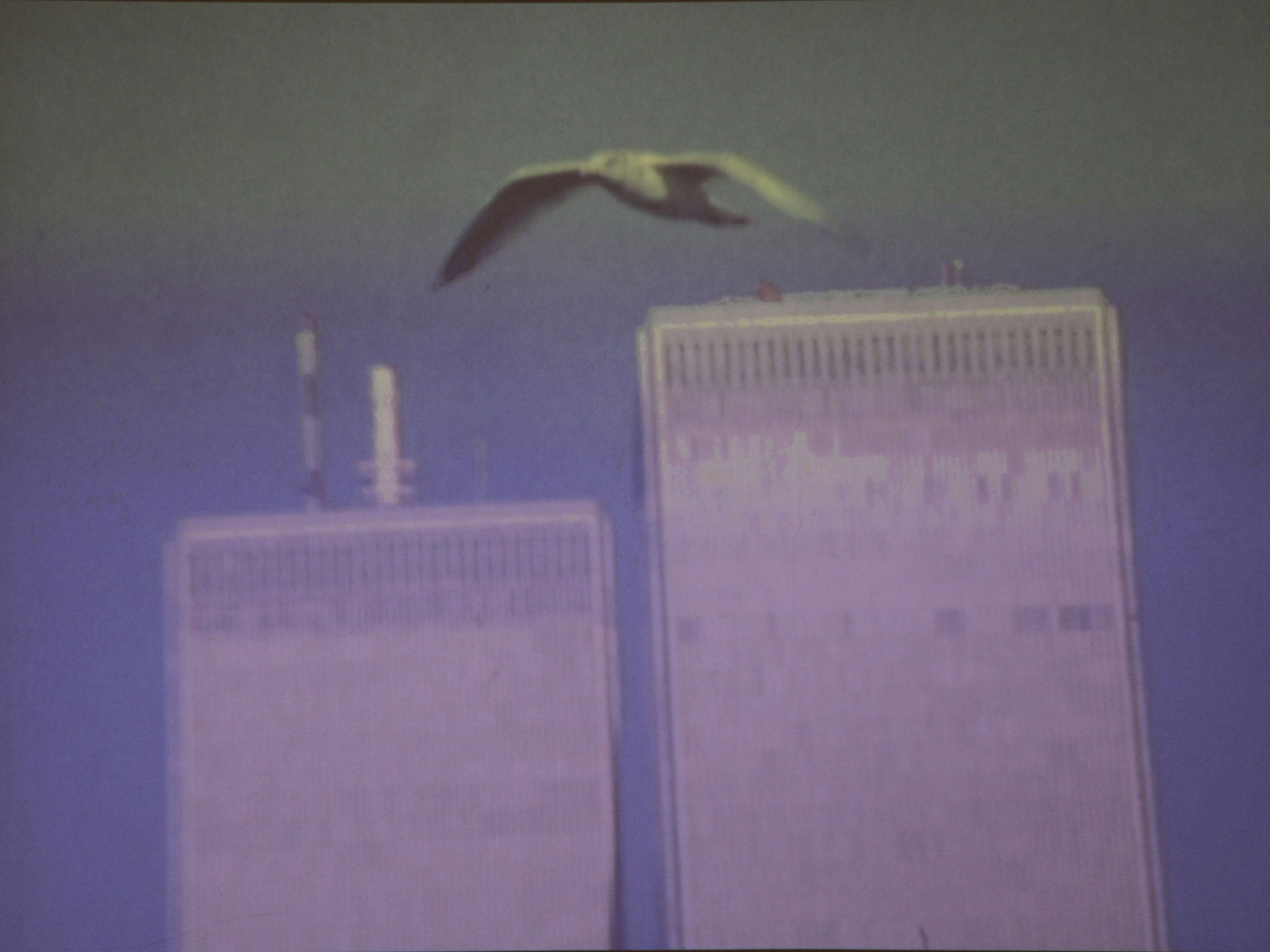IoS art review: Jonas Mekas, Serpentine Gallery, London
An offer you can't refuse from the Godfather of New York's avant-garde

As you'd guess from its name, WTC Haikus is short, although, as you might not expect, it is a 14-minute film rather than a 17-syllable poem. It is the work of Jonas Mekas, who moved to New York from Lithuania in 1949, turns 90 on Christmas Eve and is known, with good reason, as the Godfather of American avant-garde cinema. The WTC of the work's title stands for World Trade Center; it is currently on show, with other of Mekas's films, at the Serpentine Gallery in London.
Projected on a wall, faded figures do the kinds of thing that faded figures do in every old home movie of Manhattan. A pretty, windswept woman smiles from the stern of the Staten Island Ferry, the Statue of Liberty in scaffolding behind her. It is 1980 or so. The moving snapshots seem randomly chosen: a New York nutter in a cardboard hat with a houseplant growing out of it, kids running in a park, people hacking into a watermelon at a picnic, a fugitive white balloon. Less expected is a quick, unheralded shot of Andy Warhol, Mekas's friend and collaborator.
Behind all of these, sometimes sunlit, sometimes blurred in mist, are the twin towers. WTC Haikus is insistently hand-held – maybe even incredibly so – surely any half-decent film-maker has a steadier grip than this? At the end of the film is a single credit. It states Mekas's name and copyright, and the date the work was made: 2010.
But unless we're being duped, the constituent parts of WTC Haikus were made not two years ago, but at various dates between 1973 when the World Trade Center was put up, and 2001 when it was destroyed. When these clips were made, "film" meant something different: WTC Haikus is a video, but Mekas's home movies were shot in 16mm stock and transferred to the newer medium. The World Trade Center, too, had a different meaning over its 28-year life.
It was the tallest of the buildings in America's shining city on a hill, a symbol of prosperity, optimism. Now, we can see only the gin-clear skies of a September day, the flash of a jet, the orange bloom of flame. So, too, with 16mm film transferred to video: the resultant image is new-old, alive-dead. Roland Barthes saw the aptness of the word "shoot" to describe filming, recognising that to record the image of a thing is to encompass its death. At all-but-90, Mekas, too, sees this. History – his own, and the history of film – has folded in on itself, and all time has become present.
Mekas himself spells this out for us in a new film playing in the Serpentine's central gallery. Called Outtakes from the Life of a Happy Man, this hour-long movie is as seemingly randomly organised as all the works in this show. There are, in no noticeable order, shots of children scratching at violins in a Suzuki school, kids on a beach, bits of script typed with an old-fashioned typewriter: "Children talking on a bus: 'After school, let's go to Central Park. We found a lobster once – there's a stream'"; "They look like honest people but they wrote a fascist review."
Over this, apparently equally sporadic, is a soundtrack – bits of Scandinavian jazz and street noise and, at one point, a heavily accented voice we take to be Mekas's own. "Memories?" it says. "No, these are not memories. These images are all what you see – they are real ... every second is real." The voice laughs a thick, rummy laugh. "Who cares about memories?"
I'd hesitate to say that the work in this show is about anything, in the sense of carrying an encoded moral or message. Rather, it is a series of meditations on life by way of Mekas's own, vivid, life; he spent time as a Nazi prisoner of war and in a displaced persons' camp before arriving in New York to hang out with Warhol and Yoko Ono and invent American avant-garde cinema. He is also a respected poet, and it is possibly as poems that these very late works should be taken: elegies without a sense of loss, the autobiography of an extraordinary man in love with the ordinary.
To 27 Jan (020-7402 6075)
Critic's Choice
Elizabeth Price was crowned winner of the Turner Prize last week – you can catch her work, as well as that of her fellow short-listers, at London's Tate Britain (to 6 Jan). Another recently announced art winner is Teresa Margolles, who netted the Welsh Artes Mundi prize – see work by her and six contemporaries at the National Museum Cardiff (to 13 Jan).
Join our commenting forum
Join thought-provoking conversations, follow other Independent readers and see their replies
Comments
Bookmark popover
Removed from bookmarks